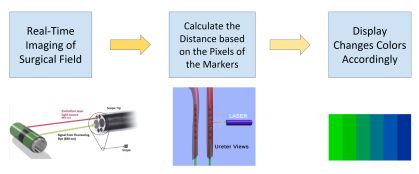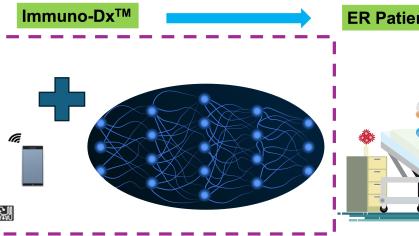Surgical Artificial Intelligence Ureteral Injury Prevention System for Robotic and Laparscopic Surgery
Inventor(s): Hussam Shwaib
Awarded: February 2025
Summary:
Rutgers researchers have developed an AI-based surgical safety system designed to prevent iatrogenic ureteral injury, a complication in abdominopelvic surgeries, with reported incidences of 1.9%. The risk is heightened in patients with prior surgeries, radiation, cancer, inflammatory disease, or anatomical distortions. This technology uses artificial intelligence to continuously track the location of surgical instruments relative to the ureter in real-time. When a critical safety threshold is reached, the system provides an alert or, if necessary, halts instrument movement. Surgeons can adjust feedback settings to match procedural needs. Unlike existing fluorescence-based or robotic-only solutions, this software operates independently of specific surgical platforms, making it compatible with both laparoscopic and robotic procedures. The system is designed for use by a multitude of surgical specialties including colorectal, gynecologic, and general surgeons, particularly in complex cases where the ureter’s location may be obscured. By reducing the incidence of ureteral injuries, it minimizes postoperative complications, readmissions, and healthcare costs. At launch, this AI-powered system will be unique in offering continuous, automated ureter tracking with real-time intervention, setting a new standard for intraoperative safety and precision in minimally invasive surgery.
Market Applications:
- Universal Surgical Adoption: Targeted for all surgeons performing abdominal and pelvic operations, providing a broad market reach.
- Minimally Invasive Surgery (MIS) Expansion: Compatible with both laparoscopic and robotic platforms, making it adaptable across surgical techniques.
- High-Risk & Complex Surgeries: Critical for procedures involving prior surgeries, radiation, or distorted anatomy, addressing an urgent clinical need.
- Hospital Cost Reduction: Lowers postoperative complications, readmission rates, and litigation risks, leading to significant savings for healthcare systems.




